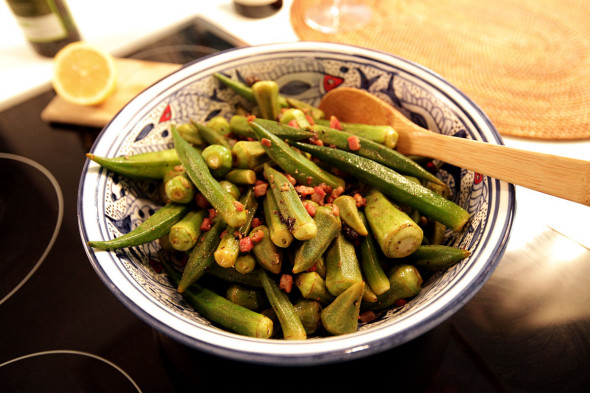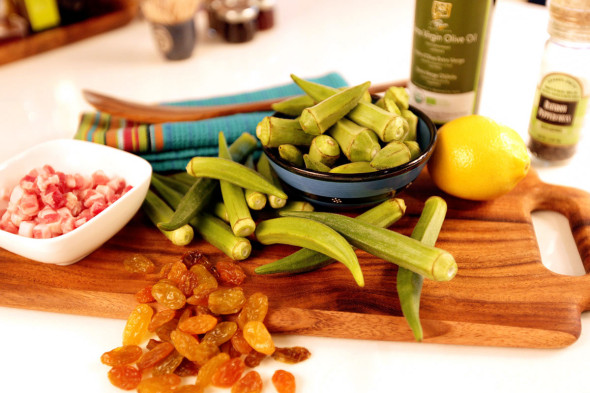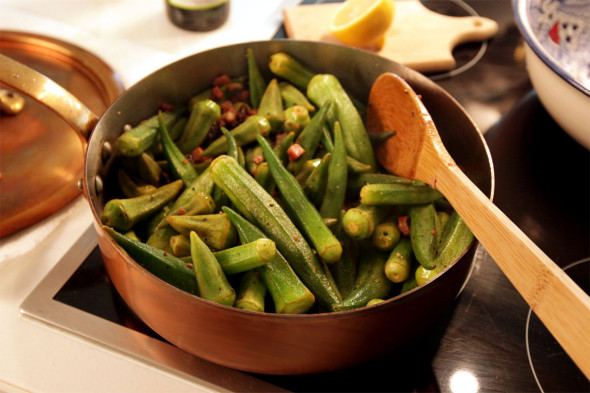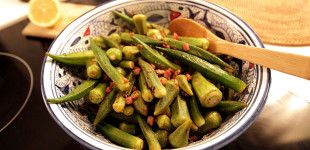Welcome travelers!
Natural Born Vagabond™ is a bilingual (English and Polish) site devoted to travel photography and journalism. Here you can find images and articles from our remote travels. The ambition of the creators is to share the best stories with those who crave wilderness and adventure. If you would like to share your opinions or travel stories please contact us via e-mail.
Featured
Natural Born Vagabond™
Lady fingers — sautéed okra

A surprising tidbit of trivia is that I never tried okra until my early thirties. I was introduced to this curious plant at the Union Square Farmers’ Market (NYC). If you have not been there, I highly recommended it. Friendly vendors at the market are more than happy to let the curious try samples, and the selection and quality are as good as any. Health-conscious New Yorkers tend to clean the stalls of their stock with alacricity on Saturdays when the market is bustling in centrally-located Union Square.
My encounter with okra came about almost as a Eureka moment. Amongst the smoked pheasants, honey, sheep cheeses, ostrich eggs in the market, I spotted — thanks to Kai’s uncanny ability (radar) for detecting tasty and unique foods — a jar of pickled smoked okra (a.k.a smokra), which upon first sight (in its rustic container) I knew I was going to like. Okra has an amazing texture, and the process of smoking and then pickling makes it one of my greatest culinary discoveries. Since then, I have made okra a regular part of my diet and find myself longing for the pleasure of snacking on smokra, which unfortunately I have to find in Dubai.
Okra, known in some households as “lady fingers”, has a characteristic finger shape that lends itself to its nickname. It has a hard “hairy” skin and oily seeds within, all of which can be consumed. When biting into the cooked fruit (it is invariably and incorrectly labelled as a vegetable) one derives a delightful surprise in the contrast of textures between the crunchy skin and the oily seeds. It is worth mentioning that the oily texture of the seeds might be described as “slimy” by some, but the addition of citrus juice will neutralise its oily consistency.
Dubai is blessed with access to a great abundance of fresh ingredients even as it is in the middle of a desert, thanks to its geography, which makes it a hub for trade and logistics. Okra can be found year round, and when in season it is stocked in great quantity at bargain prices. With such abundance and quality I could not help myself but to explore cooking with okra, which was previously only known to me in its smokra form. I have since dabbled in several recipes and happened upon one — taken from the book “The Middle Eastern Kitchen” by Ghillie Basan — which I make with adjustment, which has become a staple in my kitchen and which is shared below:

Ingredients:
– Okra: 1/2 kg
– Pancetta cubes: 250g
– Raisins: 2 tablespoons
– Lemon juice: 1.5 – 2 lemons
– Black pepper: As per taste
Preparation and cooking time 15 mins:
- Rinse okra under cold water and cut off old ends
- Squeeze fresh lemon juice over the okra and let it sit for at least 10 mins
- Toss panceta cubes in a heated pan and brown them on medium heat
- When panceta is crunchy add okra and raisins and sauté for 2-3 minutes
- Lower the heat and cook until the okra softens — but do not overcook it (you want the skin texture to remain crunchy). Tip: If using olive oil (see Note 2 below) instead of panceta, add a tablespoon of water when cooking to enusre that the okra reamin moist
- Add more lemon juice and ground black pepper as desired
- Serve as an appetiser or side dish
Note 1. When picking okra make sure its form is not too rigid. Using hard okra may result in an end product that is woody in consistency and practically inedible.
Note 2. The above receipe is suitbale for vegetarians by replacing pancetta with olive oil.
Note 3. Sugar can be used in lieu of raisins, and it will caramelise with the lemon juice and give the okra a pleasant zest of sweet and sour.
Bon appetite!



















